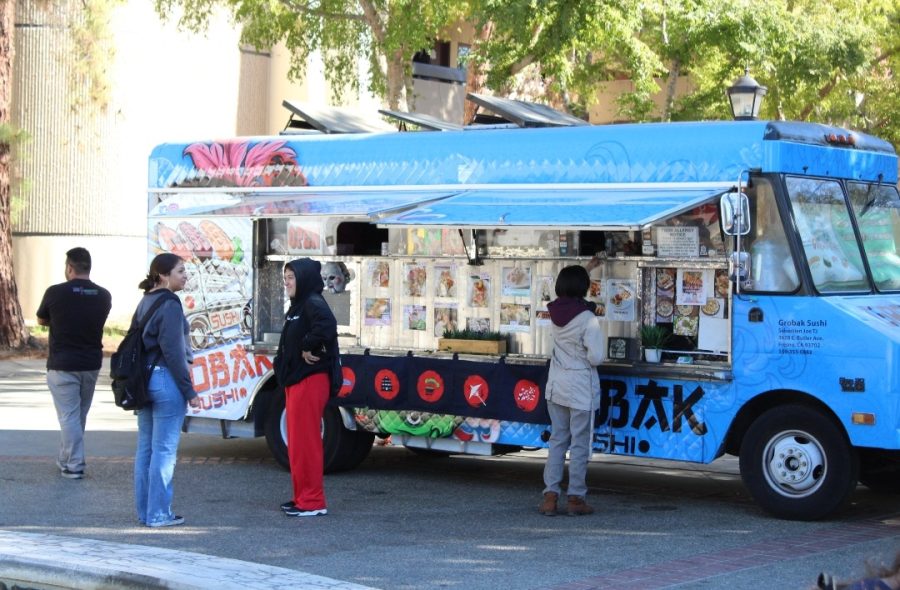BizTalk 2007, The Business Conference with Connections was held on Friday, October 5th at the Visalia Convention Center from 8 a.m. – 3 p.m. The second annual event was held in an effort to focus on the entrepreneurial skills of people within the Central Valley. The conference’s focus was to promote the importance of the business sector and its vitality for the enrichment of the country.
The main highlight of the conference this year was the arrival of guest speakers, ex-President of Mexico, Vicente Fox and his wife, Marta de Fox. Vicente Fox was president of Mexico from 2000 through 2006. He was born in Mexico City on July 2, 1942 and was the second of nine children. His father was Jose Luis Fox Pont, an American citizen and his mother was Mercedes Quesada Etxaide, a Spanish immigrant. His roots are traced back to German Catholic immigrants who migrated to the United States.
He studied at the Universidad Iberoamericana where he pursued a business degree and earned a diploma in Top Management Skills from the Business School of Harvard University.
He was invited to speak at the conference for his role in the Coca-Cola industry in Mexico. In 1964, he went to work for the Coca-Cola Company where he started as a route supervisor and drove a delivery truck. Soon thereafter, he became the supervisor of Coca-Cola’s operations in Mexico and later, to all of Latin America. As President of Coca Cola Mexico, Vicente Fox made it the top-selling soft drink and increased the sales by more than 50%. He was the youngest executive to ever be appointed president of Coca-Cola in Mexico and Latin America.
Both Vicente Fox and Marta de Fox are often compared as having a political relationship similar to that between Bill and Hillary Clinton, with Hillary being the head of operations behind much of Bill Clinton’s presidency. Like Hillary, Marta de Fox has addressed social issues within Mexico and as the former spokeswoman for Vicente Fox, andsupported a wide array of social causes including generous contributions to education in forms of scholarships totaling an estimated $6 million.
Considering that Vicente and Marta de Fox were flown in to the valley at a hefty price tag of $110,000, the speech did little to fully elaborate upon Vicente’s entrepreneurial skills. His speech focused on Mexican family values, ideal immigration policies and ideas for a thriving economy both in Mexico and the United States. Little was said about his success as a young executive, and more on the strengths made in Mexico during the time of his presidency.
Vicente Fox’s speech took an approach that touched the very hearts of every and any American sitting at the convention center that morning; globalization is not bad. The United States should open its arms to its neighbors, partners, and friends. World leaders should talk openly about their religion and Felipe Calderon (Mexico’s current president) will be the best President that Mexico has ever had. If these statements weren’t powerful enough, his core concepts for the development of a nation and for an ideal immigration policy had the convention center in a constant standing ovation and pro-longed applause.
Vicente Fox’s speech embraced the idea that “to dream the impossible” is to “make things happen”; a slogan he used to characterize his years at Coca Cola. With this said, he stated that during his presidency, he made Mexico the 7th largest importer in the world and #1 in all of Latin America. To him, macroeconomics is key to the development of a nation, including a well-established democracy, a sound market economy to generate wealth, and lastly, a powerful social poise to promote human development.
With that said, he stated that the challenges that Mexican’s face when coming to the United States is different from those at home. He believes that migration is a strength in the U.S. and finds trouble understanding why the ‘great nation’ hides and shies away from other nations. Moreover, the role Mexico plays with the U.S. is vital to its economy. Mexico buys more products and services from the U.S. than all European and Asian markets combined. By importing, Mexico benefits from the creation of millions of jobs, while the U.S. racks in over $2 billion in yearly revenue.
Fox elaborated on the role Mexican-Americans play in the Central Valley claiming that the largest production of bodies in the world are settled there.
He also recognizes the problems with immigration and suggested an ideal immigration policy that he has thoroughly expressed to President George W. Bush: 1) Those who are already in the U.S. with their families and have been contributing to the economy, should be allowed to stay with full access to labor rights, pension plans, education, and healthcare. 2) Those with Visas should be allowed to work in the United States to fill in the employment gaps that many Americans are not fulfilling and lastly, 3) immigrants are necessary for a rapidly growing U.S. economy. On average, there needs to be at least 500,000 new jobs and there are not enough U.S. families growing fast enough to accommodate all of the openings.
“We need to build bridges, not construct walls” he concluded while Marta de Fox added, “Men and women are all the same; love and patience are the main ingredients in life; placing your heart in issues that are important is key to success; connecting our intelligence with our heart, soul and knowledge leads to a better understanding of our emotions; and by pursuing education, we discover our dreams.”
Fox wrapped up the morning by announcing one of his famous candidacy slogans that made him president of Mexico: “if there is to be any change brought about in the United States or in Mexico, let’s not leave the issues for tomorrow. We have to do something about it Hoy! Hoy! Hoy! (Today! Today! Today!).



